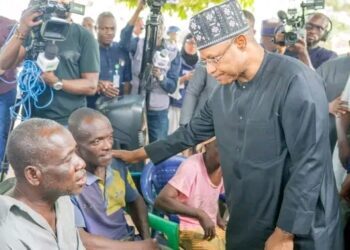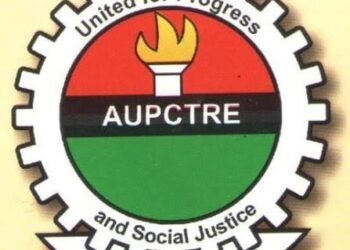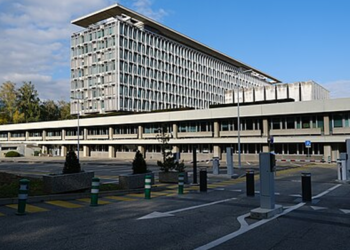As civil society organisations working to institutionalise transparency and accountability in Nigeria, we strongly condemn and reject the proposal to grant immunity to Legislators and Judicial Officers through the alteration of section 308 of the 1999 Constitution .
We equally demand the discontinuation of the immunity currently enjoyed by the Executives.
One of the greatest weaknesses of the Fourth Republic is the immunity clause that protects the President, the Vice President, the Governors and Deputy Governors from prosecution while in office.
While the original intention of the Constitution was to protect such officers from frivolous suits, in practice, many such office holders have abused the immunity they enjoy by recklessly engaging in criminal activities including corruption and other forms of abuse of office.
It is for this reason that there have been persistent calls by proponents of good governance to eliminate the clause altogether.
It is also for this reason that the undersigned organisations and individuals are alarmed by the surreptitious attempt by the National Assembly to expand the immunity clause to cover the legislative and judicial arms of government at both the State and National levels.
The proposed constitutional amendment has the dangerous potential to widen the non-accountability circle for more public officials and create conditions for the escalation of criminal acts of corruption, abuse of office and breaches of the rule of law as public officials would be emboldened to think they are above the law.
Although there are many legitimate demands for constitutional amendments by Nigerians, extending the immunity clause has never been part of it. Instead, one of the demands that has featured consistently is for the complete abrogation of the immunity clause.
We note that as the legislature moves to vote and adopt the proposed 68 amendments to the Constitution, the ruling classes in Nigeria, most especially in the National Assembly have failed to include pro-people amendments to resolve the vexatious issues of indigeneship/settler dichotomy, true devolution of powers, fiscal federalism, resource control, constitutional backing for the office of the auditor general and improvement of the security architecture since 1999.
Nigerians have also been complaining about the failure of the National Assembly to carry out an amendment separating the office of the Attorney-General of Federation and Minister of Justice to prevent political interference in the justice system.
We urge the National Assembly to prioritise amendments that are beneficial to citizens as outlined above rather than indulge in self-serving amendments that would place them on a pedestal that is above the law of the land.
Signed by the following groups working on constitution amendment and good governance in Nigeria:
SIGNED BY:
1) Centre for Democracy and Development (CDD)
2) Centre for Democratic Research and Training (CRDDERT)
3) Civil Society Network Against Corruption (CSNAC)
4) Human and Environmental Development Agenda (HEDA Resource Centre)
5) Civil Society Legislative Advocacy Centre (CISLAC)
6) Partners for West Africa – Nigeria
7) Centre for Information Technology and Development (CITAD)
8) Socio-Economic Right and Accountability Project (SERAP)
9) Falana Falana Chambers
10) International Refugee Rights Initiative (IRRI)
11) Zero-Corruption Coalition (ZCC)
12) Accountability Maternal New-born and Child Health in Nigeria (AMHiN)
13) Partners on Electoral Reform
14) State of the Union (SOTU)
15) African Centre for Media and Information Literacy (AFRICMIL)
16) National Procurement Watch Platform
17) Say NO Campaign—Nigeria
18) Resource Centre for Human Rights and Civil Education (CHRICED)
19) Social Action
20) International Press Centre
21) WANGONET
22) Community Action for Popular Participation
23) Borno Coalition for Democracy and Progress (BOCODEP)
24) Global Rights
25) Project Alert
26) Institute of Human Rights and Humanitarian Law
27) Alliance for Credible Elections (ACE)
28) Youth Initiative for Advocacy, Growth & Advancement (YIAGA)
29) Tax Justice Nigeria
30) Environmental Rights Action/Friends of the Earth, Nigeria
31) Women In Nigeria
32) African Centre for Leadership, Strategy & Development (Centre LSD)
33) Centre for Social Justice
34) HURIDAC
35) Protest to Power
36) Network on Police Reform in Nigeria(NOPRIN Foundation)
37) Rule of Law and Accountability Advocacy Centre(RULAAC)
38) Education As a Vaccine Against Women
39) Baobab for Women’s Human Rights
40) Nigerian Feminist Forum
41) Alliances for Africa
42) Space for Change
43) CLEEN Foundation
44) Northern Alliance Movement
45) Order Paper Nigeria
46) Women In Media Communication Initiative
47) Transition Monitoring Group(TMG)
48) Women Being Concern Nigeria
49) Centre for Awareness on justice and Accountability
50) Coalition of Northern Groups
51) Community Outreach for Development and Welfare Advocacy (CODWA)
52) Garkuwa Arewa Foundation
53) Corporate Accountability and Public Participation Africa(CAPPA)
54) Health Mother Earth Foundation(HOMEF)
55) Women In Nigeria
56) Women Advocates Research and Documentation Center (WARDC)
57) Nigerian Women Trust Fund
58) Women Empowerment and Legal Aid(WELA)
59) BudgiT Foundation
60) Conference of Northern states Civil Society Networks
61) Basic Rights Action
62) Conscience for Human Rights and Conflict Resolution
63) Kano Civil Society Forum
64) Network for Development Foundation (NDF)Kano
65) Organization for Community Civic(OCCEN)
66) Citizens for Development and Education
67) Resource Centre for Human Rights and Civil Education (CHRICED)
68) Women’s Rights Advancement and Protection Alternative(WRAPA)
69) Socio Economic Rights & Accountability (SERAP)
70) Enough is Enough
71) Publish What You Pay (PWYP)








